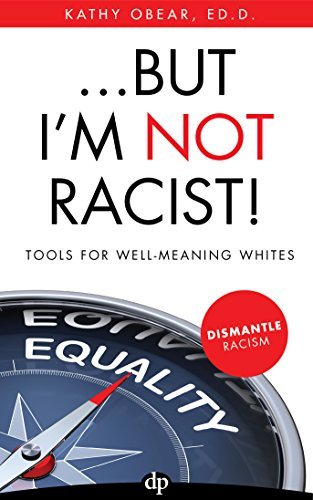What do you think?
Rate this book


118 pages, Kindle Edition
Published January 16, 2017
As you read about racist microaggressions and white privilege, I hope you choose to move through any debilitating guilt and shame you feel and realize the many ways you can effectively show up as a white change agent to shift racist interactions as well as dynamics of institutional racism. Most important, I hope you find the courage and compassion to participate in a community of white allies to continually do your self-work and develop deeper capacity to partner with people of color to create meaningful, sustainable change (10).
White people will feel such relief from guilt and shame as we make our own personal reparations and amends for the racist comments and actions in our past. As we pay it forward in our work with other whites, we feel energized as we honestly share our stories of racist actions to support other whites on their journey to healing and self-awareness (37).Well, thank Jesus that white people (who undergo her sensitivity training) will be rid of all that pesky guilt! And isn’t it great that these liberated, now guilt-free whites will go on to guide other whites towards healing and self-awareness? The lack of self-awareness necessary to be able to write about gaining white guilt-free self-awareness boggles my mind. But hey, it’s great that Obear and her army of “white allies” and “white change agents” can go about their lives footloose and fancy free of America’s ongoing inequalities caused by racism.
Given all the white privilege I receive, whatever problems or challenges I experience when I speak up pale in comparison to what people of color experience every day. And the benefits far outweigh any costs. I get to wake up, look in the mirror, and know that I am doing my part to create greater justice and liberation (70).Hooray for Dr. Kathy Obear!